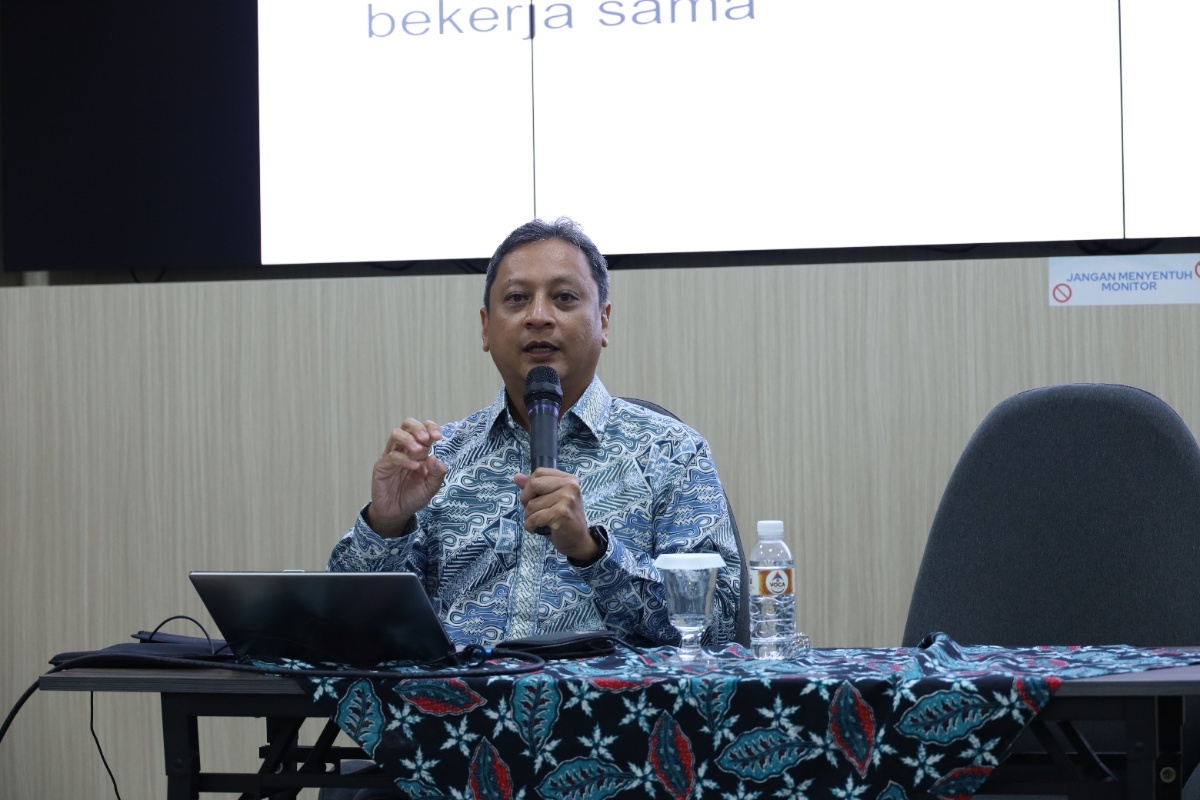UNDIP, Semarang (May 15, 2025) – Universitas Diponegoro (UNDIP) continues to demonstrate its commitment to fostering a research-driven culture and strengthening the scientific publication ecosystem by organizing a training session on the use of global academic databases. This initiative is part of the university’s broader strategy to elevate the quality and international reach of research conducted by faculty and students.
The training, titled “Utilizing E-Journal of ProQuest, ScienceDirect, Scopus AI, and Scholar UNDIP to Support Scientific Publications,” was held on Wednesday, May 14, 2025, at the 4th-floor meeting room of the UPT Library and UNDIP Press building in Tembalang. The event featured two sessions: one for faculty members and another open to both faculty and students, with Dwi Janto Suandaru—a digital literacy practitioner from Jasatama Global—serving as the speaker.
In his opening remarks, Prof. Dr. Adian Fatchur Rochim, S.T., M.T., Vice-Rector for Human Resources, Information Technology, Legal Affairs, and Organization, emphasized the critical role of digital resources in supporting high-quality research. “It is not enough for a university to produce a high volume of publications—they must also be impactful and of high quality. This training plays a crucial role in accelerating research excellence and increasing the global visibility of our academic output,” he said.
Prof. Adian also encouraged faculty to make use of the latest features in Scopus AI to enhance research mapping. “With this tool, we can better identify our research position and ongoing topics in the context of global trends. This step is essential for crafting effective publication strategies,” he added.
He further noted that each faculty member is now expected to produce at least two reputable publications indexed by Scopus annually. Scholar UNDIP (scholar.undip.ac.id) now serves as a digital showcase for faculty publications, helping boost their discoverability and citation impact.
Suwondo, S.Hum., M.Kom., Head of UPT Library and UNDIP Press, described the training as a concrete step in addressing the academic community’s need for effective access and management of scholarly sources. “We aim to make the library a dynamic information hub that remains relevant in the digital age,” he said.

During the session, Dwi Janto guided participants through various features of ProQuest, ScienceDirect, and Scopus AI. He also explained how to upload academic work to the UNDIP repository and make use of Scholar UNDIP as an educational promotion tool.
According to him, digital literacy today goes beyond finding articles—it also involves selecting the proper references, managing citations, and understanding research trends.
“Using e-journals should be more than just searching for content. Researchers need to know how to choose relevant sources, manage them properly, and analyze trends using Scopus AI. This step helps streamline inspiration and foster collaboration,” he explained.
Dwi Janto also highlighted the strengths of each platform:
- ProQuest offers access to over 26,000 collections from 150 countries, including journals, e-books, and multidisciplinary research data.
- ScienceDirect provides over 16 million articles across various scientific fields, along with a convenient remote access feature.
- Scopus AI introduces natural language-based search innovations that assist researchers in efficiently identifying topic trends and academic networks.
- Scholar UNDIP and PURE serve as digital documentation tools for faculty publications, enhancing UNDIP’s global academic visibility.
“This initiative reflects UNDIP’s strong commitment to strengthening its position as a leading research institution, both nationally and internationally,” Dwi Janto concluded.
Participants showed strong enthusiasm throughout the event, actively engaging in discussions and expressing keen interest in the advanced features offered by the platforms. They also received technical guidance for accessing the databases on and off campus.
Through such initiatives, UNDIP continues to build a collaborative, productive, and globally oriented-research environment. This training is expected to become a recurring activity and a tangible step toward realizing UNDIP’s vision of becoming a world-class research university. (Public Communication/UNDIP/DHW)